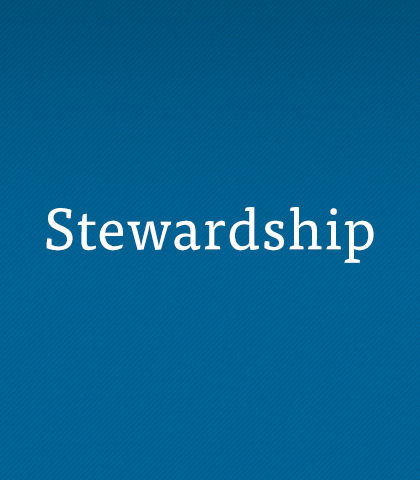How Concerned Should Christians Be About the Environment?
I believe Christians should be concerned about the environment—valuing it as much or more than others do. We should be the best environmentalists because of creation’s relationship to God.

Stewardship has long been a sensitive topic in the Church. Because of abuses by certain give-to-me-to-get-for-yourself preachers, many legitimate, godly pastors avoid the topic of finances for fear of seeming money hungry. However, as any Bible-teaching pastor would know, God remains Lord over all the earth and over every area of our lives—including the money He entrusts to us.
As Christians, then, we must think carefully about our stewardship in ways that honour God. How much money should I give to God’s work? Does the concept of stewardship only relate to finances? Should I expect to enjoy the act of giving—or just do it as a duty? Allow our tools on stewardship to enlighten your mind and renew your attitude as you seek to become a godly giver.
I believe Christians should be concerned about the environment—valuing it as much or more than others do. We should be the best environmentalists because of creation’s relationship to God.
James’ advice isn’t just for people who possess great riches; it’s just as applicable to the pauper in Christ as to the prince.
Our hearts need to line up on this: everything, including all we are and have, is God’s. The question we ask is not, “How much of my money should I give?” but, “How much of God’s money should I keep?”
What I saw missing from my ministry was balance. While it was important for me to be there when someone needed me, it was also important for me to spend time alone with God because I needed Him.
In this message, we shall hear what God says about and to a certain percentage of the wealthy—at least, the wealthy of the first century. Then we'll consider how it relates to the wealthy of today. The basis of our thoughts will be James 5:1-6.
Being involved in church, volunteering your skills, and helping others however you can aren’t actions specially set aside for the chosen few or the super religious.
Well, I did (do) have a problem with procrastination, and I waited too long to start studying for this final. It was the night before and I literally had to learn an entire semester worth of work in one night.
I always thought I spent my 24 hours per day pretty well—I took time for work, play, friends and family, and had enough left for rest. So of course just as I was feeling proud of my time-keeping abilities, I got a new job.
Five proven time-wasters. Put these suggestions into motion, and your new year could set records in wasting valuable time. But on the other hand, who wants to do that?
Living in a material world, and especially in capitalistic North America, the pressure to be caught up in materialism is enormous.